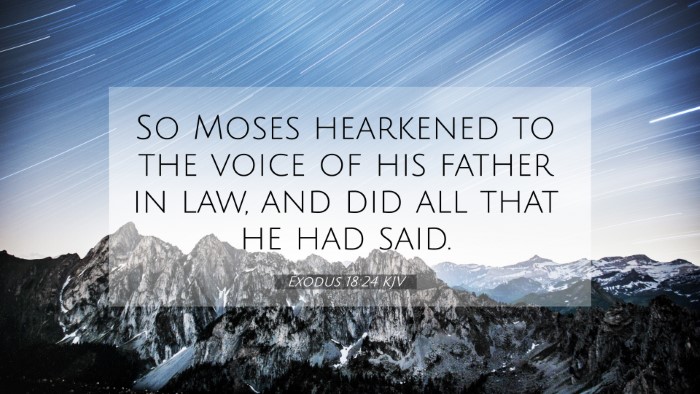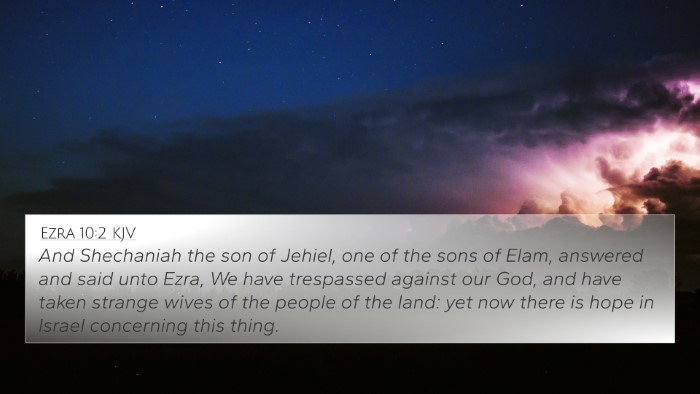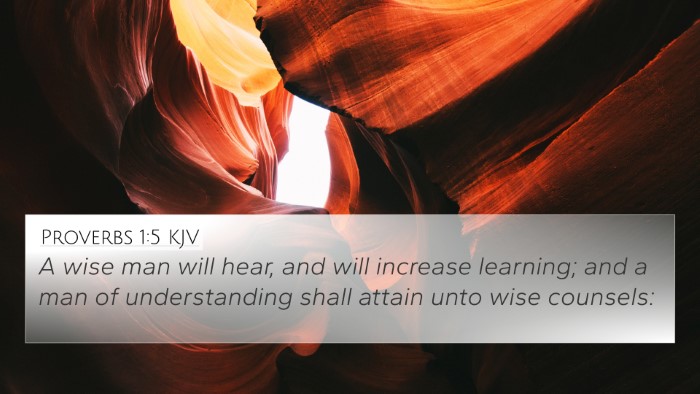Understanding Exodus 18:24
Exodus 18:24 states, "So Moses hearkened to the voice of his father-in-law, and did all that he had said." This verse highlights the importance of heeding wise counsel, showing how Moses, a leader chosen by God, valadridly listened and acted upon the advice given to him by Jethro, his father-in-law.
Commentary Insights on Exodus 18:24
-
Matthew Henry emphasizes the significance of humility in leadership. He points out that despite Moses’ high position, he was not above receiving counsel. This illustrates that wisdom and understanding can be found in varied places and recognizing this is crucial for effective leadership.
-
Albert Barnes suggests that this moment reflects not only Moses’ respect for his father-in-law's judgment but also his willingness to adapt and seek improvement in his leadership methods. His obedience to this advice demonstrated a commitment to the people he led, ensuring that their needs would be more effectively addressed.
-
Adam Clarke notes that Jethro’s counsel was pragmatic, aimed at alleviating Moses' burden. Clarke highlights that this verse demonstrates a model for leaders—adapting structure in governance to allow for delegation and shared responsibility, which ensures sustainability in leadership.
Thematic Connections and Cross-References
This verse establishes important themes of leadership, counsel, and humility. The following Bible verses can be cross-referenced to deepen understanding:
- Proverbs 12:15: "The way of a fool is right in his own eyes: but he that hearkeneth unto counsel is wise." This verse echoes the necessity of seeking counsel as a mark of true wisdom.
- Proverbs 11:14: "Where no counsel is, the people fall: but in the multitude of counselors there is safety." Highlighting the danger in isolation and the protective aspect of diverse advice, paralleling Moses' need for guidance.
- James 1:19: "Wherefore, my beloved brethren, let every man be swift to hear, slow to speak, slow to wrath." This encourages listening to others, much like Moses did with Jethro.
- Exodus 18:13-20: The context preceding verse 24, where Jethro offers his advice, illustrates the importance of delegation and wise organization, which Moses accepted.
- Proverbs 15:22: "Without counsel purposes are disappointed: but in the multitude of counselors they are established." Reinforces the value of collective wisdom, akin to Jethro’s guidance.
- 1 Corinthians 12:14-20: Discussing the unity of the body of Christ, relates to how Moses was not to manage alone but share responsibilities, paralleling the collective functioning of the Church.
- Acts 6:2-4: The apostles appointed deacons to share the burden of ministry, echoing the delegation principles in Jethro’s advice to Moses.
- Romans 15:14: "And I myself also am persuaded of you, my brethren, that ye also are full of goodness, filled with all knowledge, able also to admonish one another." Highlights mutual counsel and support, linking back to Jethro’s significant input.
- Exodus 3:11: Moses' initial doubts about leading the Israelites tie into the very need for guidance and wisdom from others, accentuating the importance of collaboration.
Moral Lessons from Exodus 18:24
From these insights and cross-references, several moral lessons can be drawn:
- Value of Counsel: It is essential for leaders and individuals alike to be open to advice, learning from those with experience.
- Humility in Leadership: No matter one's position or calling, humility in accepting and applying wise counsel leads to stronger leadership.
- Delegation and Responsibility: Effective leadership involves sharing the load with others, facilitating better management and care for the community.
- Interpersonal Relationships: Building relationships based on respect and openness fosters an environment where constructive criticism can thrive.
Conclusion
Exodus 18:24 encapsulates a critical narrative in the landscape of biblical leadership. By heeding the wisdom of others, Moses not only furthered his own capacities as a leader but also ensured a more efficient and organized structure for the nation of Israel. The interconnectedness of biblical texts around this theme enriches our understanding and provides practical applications for our lives today.
Further Study and Reflection
To delve deeper into the themes of leadership, counsel, and wisdom found in Scripture, consider using tools for Bible cross-referencing and Bible concordances. Engaging in cross-reference Bible study methods can uncover rich insights, establishing a network of connections for effective spiritual understanding.








